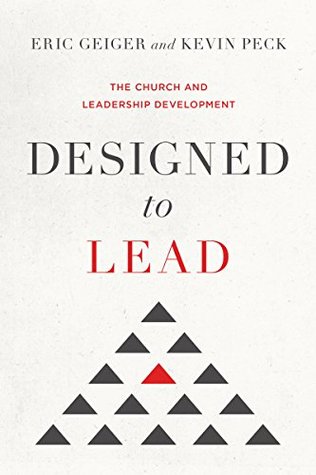More on this book
Community
Kindle Notes & Highlights
Moses is as an example of a godly leader who developed others for the mission the Lord had for His people.
leadership is always a temporary assignment—always.
We simply steward what the Lord has entrusted to our care for a season.
Part of wise and selfless stewardship is developing others and preparing them for their impending time to lead.
Through all these critical moments in the life of God’s people, Joshua was there with Moses.
After Joshua died, a generation rose up who did not even know what the Lord had done for His people.
If you can imagine life or ministry without it, it is not a conviction.
It is to our shame that we have learned to lead ministries without developing other ministers.
Leaders must own the culture of the ministry they are leading.
shared beliefs and values that undergird all your church does.
Culture is powerful. It constantly teaches, constantly shapes, and constantly forms the people who are within it.
“Culture eats strategy for breakfast.”
delegate responsibilities
there are several things he must do—several things he must not delegate.
And the things “Moses must do” are all essential in building a healthy culture of development.
(Exod. 18:20–21)
Instruct them about the statutes and laws; provide clarity about their identity. Teach them the way to live; provide focus of mission. Select the leaders; provide leaders for the people.
In a healthy culture there is strong sense of identity, clarity of mission, and credible leaders with integrity.
A healthy culture has a strong identity.
God gave the Law, in part, to show us we can’t keep the Law—that we need Jesus. Also He gave the Law to form a distinct people who would be a blessing to all other peoples.
In a healthy culture, people are continually reminded who they are, that they are His people, rescued by Him, a royal priesthood, and a people belonging to Him. If people are not reminded of their identity,
they will be burdened with lists of tasks and responsibilities without their hearts being refreshed and renewed by the Lord who loves them.
More important than work getting done is the Lord’s refreshing work in th...
This highlight has been truncated due to consecutive passage length restrictions.
If we forget who we are, we mindlessly execute and perform ministry functions without the sacred why behind all our actions.
A healthy culture has a clear mission.
“how we live around here.” They were given a sense of mission as God’s people.
Michael Goheen reminds us that “the Great Commission is not a task assigned to isolated individuals; it is an identity given to a community.”
The mission of God is for the people of God.
You can’t have a strong culture without a strong sense of mission.
A local church with a strong sense of mission will inevitably invite and develop others to join the mission.
A healthy culture develops and deploys godly leaders.
he also challenged Moses to be personally involved in the selection and placement of leaders.
the culture among God’s people was going to be set by the character of those in leadership.
The health of a culture is deeply connected to the health of her leaders.
Leaders shape the ministry culture infinitely more than your policies or programs.
He didn’t diminish competence, but he started with integrity and faithfulness.
What you have heard from me in the presence of many witnesses entrust to faithful men who will be able to teach others also. (2 Tim. 2:2 esv)
To the contrary, Paul essentially says, “Entrust all the important things to the faithful, and in time, they will be able.”
Biblical leadership development is to “find the faithful who will be able. Not the able that might be faithful.”
Someone who is faithful repents, displays the fruit of the Spirit, and lives a life directionally in submission to the Lord, not directionally in opposition to the Lord.
For apart from Him, we can do absolutely nothing. Thus a healthy culture—a culture that produces spiritual leaders—values the character and trustworthiness of the leaders, not merely the skills they can offer.
Without faithful men and women, a ministry culture loses credibility.
A healthy culture that values leadership development has a strong identity, a clear sense of mission, and is committed to selecting and deploying godly leaders.
delegate, were instrumental in developing the culture among God’s people.
a leadership system, a construct that would serve God’s people.
(Exod. 18:21–23)
Without constructs, without systems, chaos and confusion always abound.
No leader is omni-competent.
“The body is not one part but many” (1 Cor. 12:14).
a structure that will distribute the responsibility to others so that the people will receive care.


